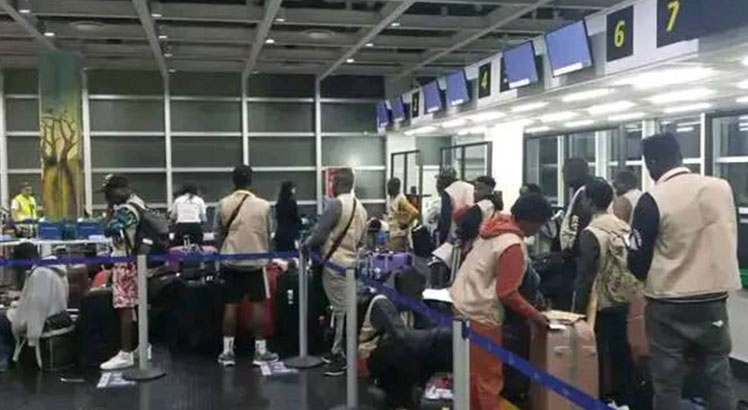Minister commissions17-yr-old health post
Lisa Osman, 29, of Traditional Authority Malili in Lilongwe has long struggled to access health services at the nearest public health facility located more than 20 kilometres (km) away.
She walked 17km to Likuni Hospital, run by the Catholic Church, to deliver her three children.
For free services, she has to walk some 30km to Bwaila Hospital or 21km to Chitedze Health Centre, the nearest public facility.
“It’s a long, tiresome journey. If you don’t have a bike to take you to Likuni, you walk and board a minibus from there if you are proceeding to Bwaila. But many people walk from here to Bwaila due to financial constraints,” she says.
Osman has seen some patients dying and women giving birth dangerously on their way to the hospital.
“I wish to deliver somewhere closer to home. It’s too hectic to travel to Likuni. It’s even expensive for people to visit you,” says Estele Jailos, who is expecting her second child.

Despite all these hurdles, Nguluwe Heath Post in the area stood idle for 17 years due to lack of vital equipment, personnel and drugs.
The facility was constructed in 2006 with funding from the European Union (EU).
On August 7 this year, after nearly two decades of deadly delays, the government opened the health post to provide basic outpatient care and referrals to more than 19 000 people in 99 surrounding villages.
While applauding the government for the facility, Senior Chief Malili says it requires a maternity wing, fence, electricity and ambulance to serve the community better.
“We are happy that patients will be treated closer, but how about pregnant women and those who need to be admitted? This facility needs to be upgraded to a full community hospital,” he says.
Minister of Health Khumbize Kandodo Chiponda says the country needs support from development partners to ensure everyone gets quality health services without hardship, including deadly delays and extra costs.
To achieve universal health coverage (UHC), President Lazarus Chakwera and his governing Tonse Alliance pledged to ensure every Malawian travels no more than five kilometres to get health services. This is in line with the National Health Policy to reduce travel by 2030.
Kandodo says the country is far from achieving the ambitious goal.
She says government plans to construct about 900 health facilities nationwide by 2030.
“We have constructed only 70 since 2020,” says the minister. “Apart from constructing new ones, this government is also completing the construction of hospitals started by previous governments.”
The hospitals that once stalled include Phalombe District Hospital, Domasi Rural Hospital and Mponela Hospital.
The minister faults political interference for the delayed completion of some projects, especially after a regime change.
She assured the rural community that government would source funds to upgrade Nguluwe Health Post to a health centre.
UHC is part of the global Sustainable Development Goals (SDGs) adopted by the United Nations General Assembly in 2015.
SDG3 calls on governments and their partners to entrench UHC by 2030. This includes financial risk protection; provision of quality essential healthcare services and access to safe and affordable essential medicines for all.
However, a study by health economist Martina Mchenga and her colleagues shows that access to health service coverage is still low and inequalities remain a concern.
The researchers recommended evidence-based financing and sector reforms to attain UHC by 2030.
Malawi has about 500 public health facilities for more than 20 million people, reports the Ministry of Health





